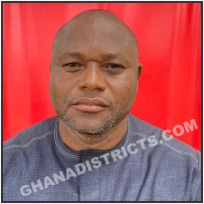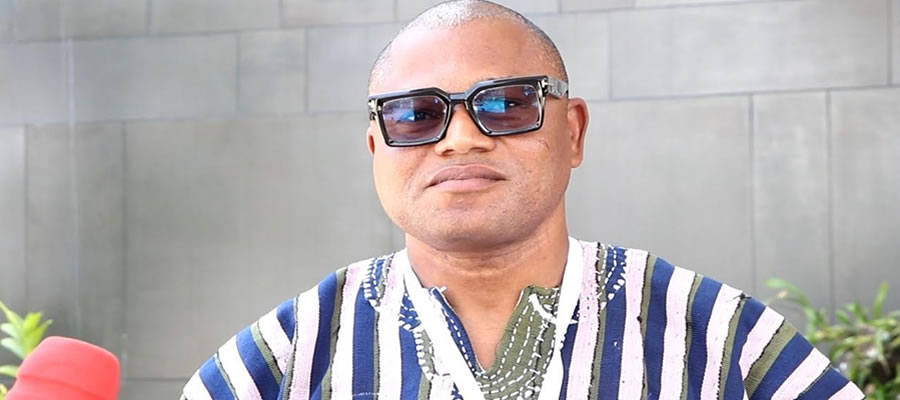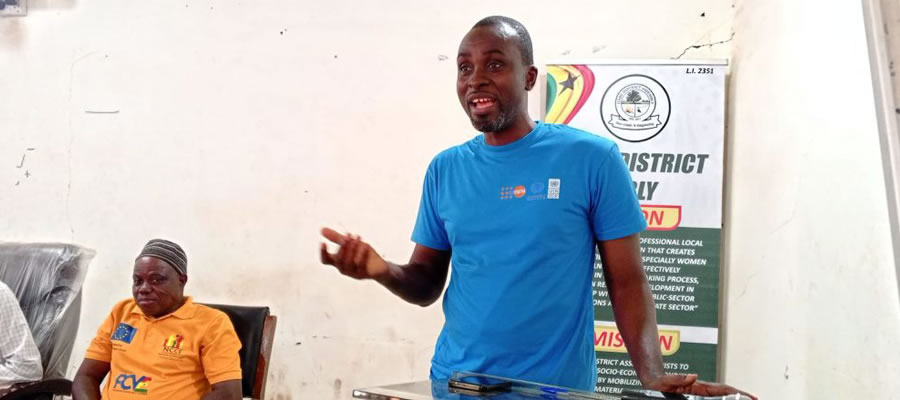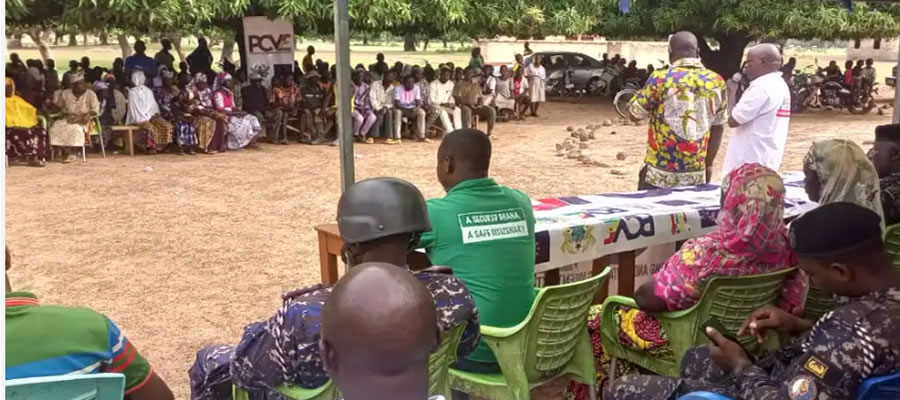

POLITICAL/ADMINISTRATIVE SET UP
The Assembly is composed of forty-six (46) members including District Chief Executive. Out of this number thirty (30) are elected, fourteen (14) are Government Appointees, One and two Ex-officio Members (MPs). Six (6) female Members and thirty-nine (39) maleMembers. Only two (2) out of the thirty (30) elected are women whereas Four (4) women are appointed.
The District is divided into Two (2) constituencies; namely Garu Constituency and Tempane Costituency. The sub-structures of the Assembly consist of nine (9) Area Councils, thirty (30) electoral areas and one hundred and fifty (150) unit committees.
The Assembly members faced a serious communication challenges interms of feed back to the electorate. Measures need to be put in place to enable the Assembly members to send feed back to the electorate whenever there is an assembly session.
STRUCTURE OF THE DISTRICT ASSEMBLY
Below is the pictorial presentation of the Structure of the Assembly and its lower structures.
Many of the decentralized departments and other agencies now operate in the District. The problem then is inadequate logistics such as means of transport, stationery etc. staffing and infrastructure both office and residential for them to work efficiently and efficiently.
Departments/Institutions, Agencies and Services
LOCAL GOVERNMENT SERVICE DEPARTMENTS
The introduction of the new Local Government service (L.I 1961) of 2009 seeks to operationalised departments at the district level as the Departments of the District Assemblies as follows:
- Central Administration Departments
- Finance Department
- Budget And Rating Department
- Department of Education, Youth and Sports
- Department of Health
- Waste Management Department
- Department of Agriculture
- Works Department
- Physical Planning Department
- Department of Trade And Industry
- Legal Department
- Natural Resources Conservation Department
- Department of Transport
- Disaster Management and Prevention Department
- Department of Community Development and Social Welfare.
SUBVENTED ORGANISATIONS
- Electoral Commission
- National Disaster Management Organisation
- National Youth Employment Programme
- National Commission & Civic Education
- Commission on Human Rights and Administrative Justice
- National Services Secretariat
- National Board for small scale Industries
SERVICES
- Ghana Police Services
- Ghana Fire Service
- Ghana Immigration Services (from Misiga)
- Military
HUMAN RESOURCE ANALYSIS
The staffing position of the Garu-Tempane District Assembly had improved by the recruitment of additional thirty-four (34) casual staff making a total of sixty-four (64) staff. However, there are still some casual staffs that are not recruited. The District Finance Office was staffed with seven (7) officers. There are no officers of the Land Valuation Board and Building Inspectorate in the District. The Officer in charge of Feeder Roads operates from Bawku.
The total staff strength of the Assembly is seventy-four (74) comprising fifty-nine (59) males and fifteen (15) females which give a gender ratio of 4:1. The number of Senior Staff is sixteen (16) and that of the Junior Staff is fifty-eight (58) giving a ratio of 4:1. c. Training, Development and Competency Based training undertaken (see appendix A3)
Postings/Changes at Management Level
During the period under review, there were a number of postings made at the Assembly. The following officers were posted out of the Garu-Tempane District Assembly as per below.
- Alhaji Abdulai Abubakari DCD posted to RCC in November 2013
- Isaac Atule –DFO posted to Bolga Municipal as substantive MFO
- Abdulai Osman -DDFO posted to Bawku West District Assembly as substantive DFO.
- Alhassan Hamza -ADPO posted to Pusiga District Assembly as substantive DPO
- Gbana Imoru-Internal Auditor posted to Nabdam as Internal Auditor
- Vincent Babantsi – PWDE posted to Bawku Municipal Assembly to augment the staff strength of the works unit
- Francis Wunab DDFO was posted to replace Abdulai Osman in the Garu-Tempane District Assembly.
There were also some postings to the District during the period. Mr. Donatus Adabiri was posted to the District as substantive DFO after Mr. Issac left. Madam Juliana Awiah was posted from the Regional Office of the Department of Social Welfare to take over from Gabriel Azagsa as substantive District Director for the Department.
TRADITIONAL AUTHORITIES
Traditional authorities also play an important role in governance. There are six divisional chiefs whilst the rest are sub-divisional chiefs, Sub-chiefs or sectional heads in the District. They help the District Assembly in revenue mobilization, mobilization of communal labour for the execution of projects, awareness creation in environmental protection and in security and justice. More conscious collaboration between the traditional authorities and the local authorities is a necessary ingredient for sustained good governance.
WOMEN PARTICIPATION IN GOVERNANCE
Women participation in local governance is very limited, out of forty-five (45) Assembly memberships only 6 are women and, 2 elected and 4 appointed. The situation is not very different in the constitution of unit committees in the District and committees and sub-committees of the Assembly.
DEVELOPMENT PARTNERS
A number of NGOS and Civil Society Organizations are also working in the District. These include;
- Presbyterian Agriculture Station
- Community based rehabilitation
- IBIS-GHANA
- World Vision Ghana
- ADDRO
- Community Based Rural Development
- BESSFA RURAL BANK
- Techno serve
- SEND GH
- CARE International, Ghana
- Maata-N-Tudo Association
- ACDEP
- CAMFED
- OXFAM
- UNICEF
- USAID ADVANCE PROGRAMME
- SCHOOL FOR LIFE
- ORPHANS AND WIDOWS MINISTRY
- IFID
- STAR GHANA
- COMMUNITY SELF-RELIANCE
- LIFE CARE
The presence of these NGOs and organizations foster collaboration and ease Development Planning. Hiowever, there are very few opportunities for interaction among the NGOs and this needs to be strengthened.
SECURITY
Security organizations in the District include the Police, Fire Service, Militory, Skones and KAWAS, a private Security organization. They provide protection to both persons and property. The District Disaster Management Organization also provides relief Services to People affected by Disaster. Plans are advanced to train people in the District to undertake Community Policing especially through the formation and effective operations of community watch committees. These have become necessary as a result of growing armed robbery and cross boarder crimes among others.
Some Challenges of the Security Services
- Inadequate accommodation both office and residential
- Inadequate means of transport
- Inadequate personnel
- Un co-operative attitude of some of the people in the District.
GENERAL PROBLEMS OF GOOD GOVERNANCE
- Inadequate Capacity for District Assembly Staff
- Inadequate residential and office accommodation for staff
- Lack of a law Court
- Non-existence of some decentralized departments
- Chieftaincy Disputes
- Inadequate and unreliable Sources of funding
- Ineffective Area Council
- Inadequate Funding
- Inadequate staff both in numbers and skills
- Inadequate equipment/logistics
- Inadequate data for planning and decision making
- Slow pace of decentralization
- Low Participation in governance among the populace
POLITICAL/ADMINISTRATIVE SET UP
The Assembly is composed of forty-six (46) members including District Chief Executive. Out of this number thirty (30) are elected, fourteen (14) are Government Appointees, One and two Ex-officio Members (MPs). Six (6) female Members and thirty-nine (39) maleMembers. Only two (2) out of the thirty (30) elected are women whereas Four (4) women are appointed.
The District is divided into Two (2) constituencies; namely Garu Constituency and Tempane Costituency. The sub-structures of the Assembly consist of nine (9) Area Councils, thirty (30) electoral areas and one hundred and fifty (150) unit committees.
The Assembly members faced a serious communication challenges interms of feed back to the electorate. Measures need to be put in place to enable the Assembly members to send feed back to the electorate whenever there is an assembly session.
STRUCTURE OF THE DISTRICT ASSEMBLY
Below is the pictorial presentation of the Structure of the Assembly and its lower structures.
Many of the decentralized departments and other agencies now operate in the District. The problem then is inadequate logistics such as means of transport, stationery etc. staffing and infrastructure both office and residential for them to work efficiently and efficiently.
Departments/Institutions, Agencies and Services
LOCAL GOVERNMENT SERVICE DEPARTMENTS
The introduction of the new Local Government service (L.I 1961) of 2009 seeks to operationalised departments at the district level as the Departments of the District Assemblies as follows:
- Central Administration Departments
- Finance Department
- Budget And Rating Department
- Department of Education, Youth and Sports
- Department of Health
- Waste Management Department
- Department of Agriculture
- Works Department
- Physical Planning Department
- Department of Trade And Industry
- Legal Department
- Natural Resources Conservation Department
- Department of Transport
- Disaster Management and Prevention Department
- Department of Community Development and Social Welfare.
SUBVENTED ORGANISATIONS
- Electoral Commission
- National Disaster Management Organisation
- National Youth Employment Programme
- National Commission & Civic Education
- Commission on Human Rights and Administrative Justice
- National Services Secretariat
- National Board for small scale Industries
SERVICES
- Ghana Police Services
- Ghana Fire Service
- Ghana Immigration Services (from Misiga)
- Military
HUMAN RESOURCE ANALYSIS
The staffing position of the Garu-Tempane District Assembly had improved by the recruitment of additional thirty-four (34) casual staff making a total of sixty-four (64) staff. However, there are still some casual staffs that are not recruited. The District Finance Office was staffed with seven (7) officers. There are no officers of the Land Valuation Board and Building Inspectorate in the District. The Officer in charge of Feeder Roads operates from Bawku.
The total staff strength of the Assembly is seventy-four (74) comprising fifty-nine (59) males and fifteen (15) females which give a gender ratio of 4:1. The number of Senior Staff is sixteen (16) and that of the Junior Staff is fifty-eight (58) giving a ratio of 4:1. c. Training, Development and Competency Based training undertaken (see appendix A3)
Postings/Changes at Management Level
During the period under review, there were a number of postings made at the Assembly. The following officers were posted out of the Garu-Tempane District Assembly as per below.
- Alhaji Abdulai Abubakari DCD posted to RCC in November 2013
- Isaac Atule –DFO posted to Bolga Municipal as substantive MFO
- Abdulai Osman -DDFO posted to Bawku West District Assembly as substantive DFO.
- Alhassan Hamza -ADPO posted to Pusiga District Assembly as substantive DPO
- Gbana Imoru-Internal Auditor posted to Nabdam as Internal Auditor
- Vincent Babantsi – PWDE posted to Bawku Municipal Assembly to augment the staff strength of the works unit
- Francis Wunab DDFO was posted to replace Abdulai Osman in the Garu-Tempane District Assembly.
There were also some postings to the District during the period. Mr. Donatus Adabiri was posted to the District as substantive DFO after Mr. Issac left. Madam Juliana Awiah was posted from the Regional Office of the Department of Social Welfare to take over from Gabriel Azagsa as substantive District Director for the Department.
TRADITIONAL AUTHORITIES
Traditional authorities also play an important role in governance. There are six divisional chiefs whilst the rest are sub-divisional chiefs, Sub-chiefs or sectional heads in the District. They help the District Assembly in revenue mobilization, mobilization of communal labour for the execution of projects, awareness creation in environmental protection and in security and justice. More conscious collaboration between the traditional authorities and the local authorities is a necessary ingredient for sustained good governance.
WOMEN PARTICIPATION IN GOVERNANCE
Women participation in local governance is very limited, out of forty-five (45) Assembly memberships only 6 are women and, 2 elected and 4 appointed. The situation is not very different in the constitution of unit committees in the District and committees and sub-committees of the Assembly.
DEVELOPMENT PARTNERS
A number of NGOS and Civil Society Organizations are also working in the District. These include;
- Presbyterian Agriculture Station
- Community based rehabilitation
- IBIS-GHANA
- World Vision Ghana
- ADDRO
- Community Based Rural Development
- BESSFA RURAL BANK
- Techno serve
- SEND GH
- CARE International, Ghana
- Maata-N-Tudo Association
- ACDEP
- CAMFED
- OXFAM
- UNICEF
- USAID ADVANCE PROGRAMME
- SCHOOL FOR LIFE
- ORPHANS AND WIDOWS MINISTRY
- IFID
- STAR GHANA
- COMMUNITY SELF-RELIANCE
- LIFE CARE
The presence of these NGOs and organizations foster collaboration and ease Development Planning. Hiowever, there are very few opportunities for interaction among the NGOs and this needs to be strengthened.
SECURITY
Security organizations in the District include the Police, Fire Service, Militory, Skones and KAWAS, a private Security organization. They provide protection to both persons and property. The District Disaster Management Organization also provides relief Services to People affected by Disaster. Plans are advanced to train people in the District to undertake Community Policing especially through the formation and effective operations of community watch committees. These have become necessary as a result of growing armed robbery and cross boarder crimes among others.
Some Challenges of the Security Services
- Inadequate accommodation both office and residential
- Inadequate means of transport
- Inadequate personnel
- Un co-operative attitude of some of the people in the District.
GENERAL PROBLEMS OF GOOD GOVERNANCE
- Inadequate Capacity for District Assembly Staff
- Inadequate residential and office accommodation for staff
- Lack of a law Court
- Non-existence of some decentralized departments
- Chieftaincy Disputes
- Inadequate and unreliable Sources of funding
- Ineffective Area Council
- Inadequate Funding
- Inadequate staff both in numbers and skills
- Inadequate equipment/logistics
- Inadequate data for planning and decision making
- Slow pace of decentralization
- Low Participation in governance among the populace
Date Created : 11/20/2017 6:37:44 AM











 facebook
facebook
 X
X
 Youtube
Youtube
 instagram
instagram
 +233 593 831 280
+233 593 831 280 0800 430 430
0800 430 430 GPS: GE-231-4383
GPS: GE-231-4383 info@ghanadistricts.com
info@ghanadistricts.com Box GP1044, Accra, Ghana
Box GP1044, Accra, Ghana